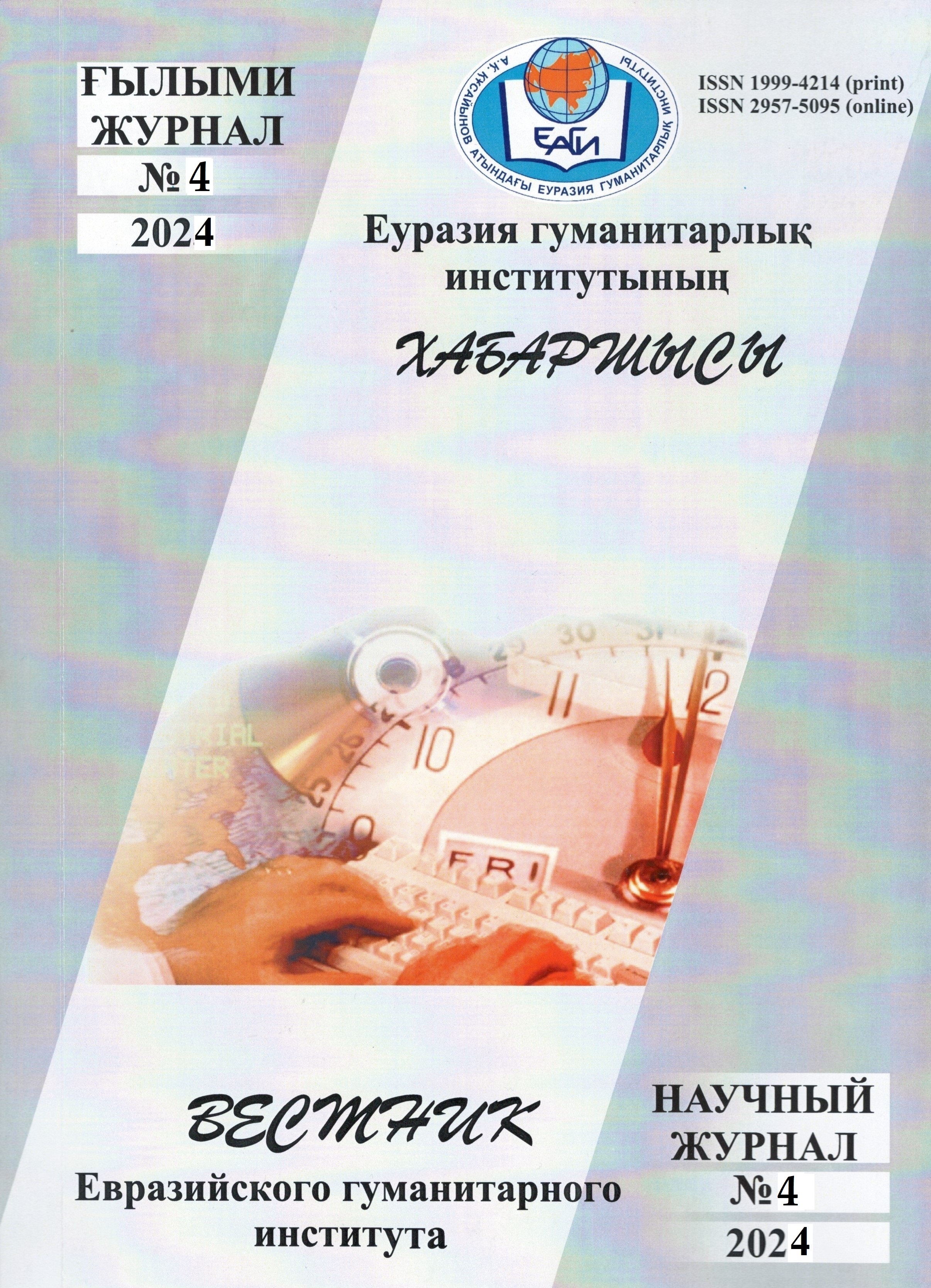*BIY'S LINGUISTIC PERSONALITY AND EFFECTIVE COMMUNICATION
Keywords:
rhetoric of law, moral identity, rhetorical identity, perlocation, illocution, rhetorical ideal, communicative rhetoric.Abstract
The article is devoted to the issues of communicative rhetoric concerning the concepts of rhetorical and moral identity characterizing the Kazakh rhetorical ideal, national and communicative consciousness. The object of consideration was the biy's linguistic personality and his communication with subjects of law. The object of consideration was the biy's linguistic personality and his communication with subjects of law. The speech impact of biy on the listener in the aspect of rhetorical argumentation as an instrument of identity formation, the role of biy as a communicator are considered to analyse rhetorical discourse, illocutionary and perlocutionary effects of the speaker on the listener, description of the portrait of biy's linguistic personality. The use of the concepts of «Memorial cultures», rhetorical identity, and managed identity contribute to the psycho-analytical and phenomenological interpretation of the problem. The use of a neorhetorical approach, methods of linguopragmatics, linguoconcetology, linguoculturology, as well as the historical and typological method allowed us to characterize the communicative strategies of Tole biy, Kazybek biy and Ayteke biy. The description of the speaker's intention, the implementation of the intention and the listener's recognition of the biy's intention are based on the use of perlocution. The results of using logical riddles, idioms, phraseological resources of the Kazakh language, proverbs as the basis for an aphoristic style and allegory are described. The synthesis of linguistic, controlled and collective identity is shown on the example of argumentation, communication for educating the listener and controlling his consciousness with the help of popular ideas about worldview and world behavior. This approach explains both the identity crisis and the transformation of the rhetorical ideal. The significance of Kazakh rhetoric is substantiated from the perspective of developing a rhetorical identity and profiling it into a professional identity.


